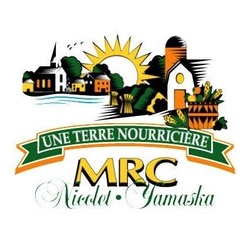
MRC Nicolet-Yamaska — Signature project (FRR part 3)
At a glance
- No Condition
- Unspecified
- Agriculture, forestry, fishing and hunting
- Nicolet
- All legal structures
- All revenue ranges
- All organization sizes
- Rural or Northern Residents
Overview
The Projet Signature (FRR volet 3) grant aims to facilitate a significant ecological transition within the MRC de Nicolet-Yamaska by developing a network of ecological infrastructures, focusing on maintaining natural areas, enhancing connectivity between these areas, and creating urban ecological infrastructures, with funding allocated to both collective and local municipal projects. The maximum funding amount is not explicitly stated, but the funds are distributed for projects that align with these priorities, subject to approval by the relevant authorities.
Eligibility
Eligibility for this grant is determined by specific project requirements related to the proposed activities and their alignment with the program's objectives.
- The project must focus on maintaining natural environments, increasing connectivity between natural environments, or creating ecological infrastructures in urban areas.
- Projects must be submitted by organizations or municipal entities within the MRC of Nicolet-Yamaska.
- The project must be submitted along with a completed and signed project form, a financial plan in Excel format, a municipal council resolution authorizing the project submission, and any other relevant documents.
- Prior contact with Stéphanie Lord to validate project eligibility is recommended.
Who is eligible?
Municipalities within the MRC of Nicolet-Yamaska are eligible to apply for funding under the "Projet Signature" (FRR volet 3) to develop projects that support ecological transition and innovation. Projects must contribute to maintaining natural environments, increasing connectivity between natural areas, or creating ecological infrastructures in urban settings. Funding is available for collective projects led by the MRC with environmental impacts across the territory and local projects proposed by individual municipalities within the MRC.
Eligible geographic areas
The eligibility for this grant appears to be geographically limited to the MRC of Nicolet-Yamaska region according to the context provided by the funding body. This focus aims to promote regional ecological and infrastructural development.
- Organizations operating within the MRC of Nicolet-Yamaska.
How to apply
Verification of project eligibility
Resource Consultation
- Consult the municipal projects guide.
- Review the project analysis grid.
Preparation of documents
- Complete and sign the project form.
- Prepare the financial plan in the form of an Excel file.
- Obtain a resolution from the municipal council authorizing the submission of the project.
- Gather any other relevant documents.
Submission of the application
Additional information
Here are additional relevant details for this grant:
- There is a committee known as the "comité directeur de l'Entente" responsible for overseeing the implementation of project objectives and identifying collective projects annually.
- A report on the use of funds must be produced and submitted annually by the MRC to ensure accountability and transparency.
- The MRC has established a timeline for project submission deadlines for municipal projects, specifically the deadlines of April 26, 2024, and October 25, 2024.
- An accompanying firm, Habitat Nature, is involved in the ecological transition process to provide strategic support and a comprehensive ecological assessment of the territory.
Contacts
Frequently Asked Questions about the MRC Nicolet-Yamaska — Signature project (FRR part 3) Program
What is the MRC Nicolet-Yamaska — Signature project (FRR part 3)?
Who is eligible for the MRC Nicolet-Yamaska — Signature project (FRR part 3) program?
Who can I contact for more information about the MRC Nicolet-Yamaska — Signature project (FRR part 3)?
Where is the MRC Nicolet-Yamaska — Signature project (FRR part 3) available?
Is the MRC Nicolet-Yamaska — Signature project (FRR part 3) a grant, loan, or tax credit?
Who are the financial supporters of the MRC Nicolet-Yamaska — Signature project (FRR part 3)?
More programs like this

Support for biofood exports - individual projects
Ministry of Agriculture, Fisheries and Food (MAPAQ)
ÉcoPerformance — Recommissioning of building mechanical systems
Gouvernement du Québec
Panorama Program
Investissement Québec (IQ)
Financing to respond to the offensive of new tariffs and for initiatives for resilient and exporting companies (FRONTIERE)
Investissement Québec (IQ)
Program to support the development of agriculture and agri-food in the regions
Ministry of Agriculture, Fisheries and Food (MAPAQ)
Efficient Solutions Program — Agricultural Component
Hydro-Québec
PADAAR — Measure 4021 – Promotion of regional products
Ministry of Agriculture, Fisheries and Food (MAPAQ)
Support program for the development of reserved designations and promotional terms — Component 1
Ministry of Agriculture, Fisheries and Food (MAPAQ)
AgroPerformance – Stream 1 : Support for the agricultural sector in adopting agritechnologies
Gouvernement du Québec